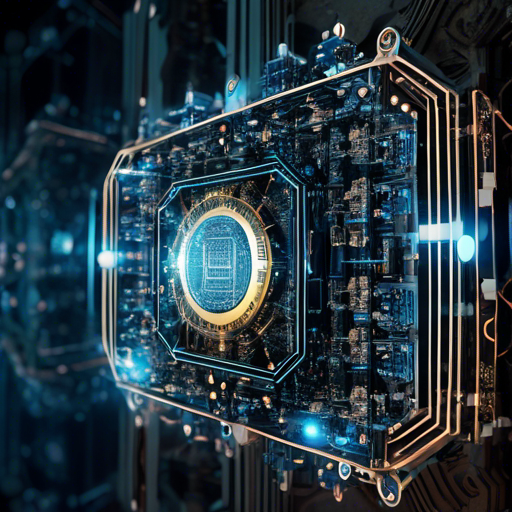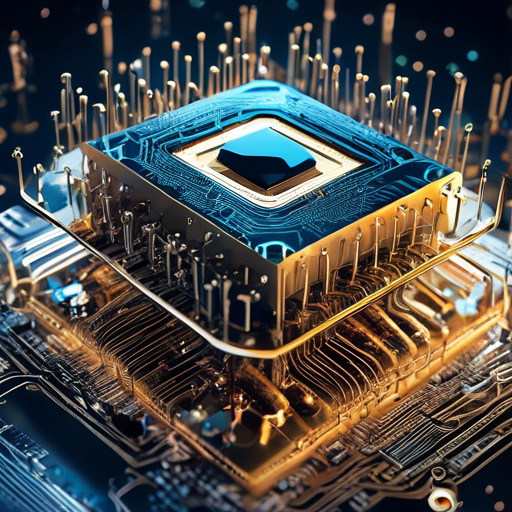Quantum Computing, AI, and Blockchain: A Powerful Synergy for the Future - Overcoming Challenges for a Quantum-Resistant Future

The integration of quantum computing, AI, and blockchain holds immense potential for reshaping industries and enhancing efficiency, security, and scalability. However, challenges remain, and collaboration between researchers, developers, and governments is crucial for addressing obstacles and establishing frameworks.

Introduction
Quantum computing, AI, and blockchain are three revolutionary forces that have gained momentum and have a promising future in reshaping industries. Quantum computing, with its ability to perform complex calculations at an unprecedented speed, has the potential to address the computational needs of modern technological industry development. Blockchain technology is being used to secure
data and transactions in various applications, while AI is being used to optimize product and service features, improve talent management, and automate smart contracts.
However, the rise of quantum computing poses a threat to the security of blockchain and cryptocurrencies. Quantum algorithms could potentially factor large numbers used in encryption schemes, compromising the security of blockchain and cryptocurrencies. Cryptocurrencies and blockchain technology will have to adapt to the capabilities of quantum computers to preserve decentralized governance structures.
Imagine quantum computers as a super-powered calculator that can solve complex mathematical problems in a fraction of the time it takes classical computers. This computational power can be harnessed to improve the efficiency of blockchain and AI, but it also poses a threat to the security of these systems.


Quantum Computing and Cryptography
Quantum computers pose a potential threat to traditional cryptographic algorithms, including those used in blockchain technology. Shor's algorithm, for example, could theoretically break RSA encryption, which is widely used in secure communications. To address this, researchers are working on quantum-resistant or post-quantum cryptography. These are algorithms designed to be secure against both classical and quantum computers. Techniques like lattice-based cryptography, hash-based signatures, and multivariate cryptography are being explored as potential solutions. Blockchain networks will need to implement these quantum-resistant measures to maintain security in the long run.
Integrating Quantum AI and Blockchain
The integration of quantum artificial intelligence and blockchain technology holds immense potential. Quantum AI could significantly enhance the efficiency and capabilities of blockchain networks. Some possible applications include:
- Improved transaction verification and network scalability through optimized consensus protocols
- Enhanced data analysis for insights, predictions, and anomaly detection within blockchain data
- Enabling privacy-preserving techniques for more secure and confidential transactions
- Faster complex computations for applications like blockchain-based supply chain optimization and financial modeling
However, integrating quantum AI and blockchain also presents challenges. Quantum algorithms and blockchain architecture will need to be adapted to work together effectively. Standardization and interoperability between different quantum and blockchain systems could also pose hurdles.
Potential Impact on Cryptocurrency
Quantum computing could significantly impact cryptocurrency mining and security. Mining could become much faster, potentially leading to more centralization. Quantum computers might also be able to break the cryptographic signatures that secure cryptocurrency wallets, putting funds at risk.
However, the scale of quantum computers needed to pose a serious threat to Bitcoin and other cryptocurrencies is still significant. Estimates suggest breaking Bitcoin would require a quantum computer with around 1.9 billion qubits, processing for about 10 minutes. For now, this is well beyond the capability of current quantum hardware.
As quantum computing advances, cryptocurrencies will likely need to implement upgrades, potentially through hard forks, to transition to quantum-resistant algorithms. This will be essential to maintain security and trust in cryptocurrency systems long-term.
The Takeaway
While the potential of quantum computing is vast, claims of an imminent threat to blockchain and cryptocurrency security are likely overblown. Quantum technology is still developing, giving blockchain time to adapt. The coming years will be crucial in preparing blockchain for the quantum age through research, upgrades, and standardization.
In the long run, the convergence of quantum computing, AI, and blockchain could yield transformative benefits across industries, from finance to supply chain to healthcare. Technical challenges remain, but with collaborative effort between researchers, developers, and businesses, a powerful synergy between these technologies could be achieved. Governance and regulatory frameworks will also play a key role in realizing this potential responsibly and securely.
Conclusion
The integration of quantum computing, AI, and blockchain holds immense potential for enhancing decentralized systems, improving the efficiency of blockchain, and facilitating efficient data analysis within blockchain networks. However, the rise of quantum computing poses a threat to the security of blockchain and cryptocurrencies. Quantum AI and blockchain technology will have to adapt to the capabilities of quantum computers to preserve decentralized governance structures.
Collaboration between researchers, businesses, and governments is needed to address obstacles and establish frameworks for the integration of quantum computing, AI, and blockchain. With a quantum-resistant future in mind, these technologies can pave the way for a more secure and efficient digital world.


References
Cryptocurrency vs. quantum computing: A deep dive into the future of cryptocurrencies
The Future Potential for Blockchain, AI, and Quantum Computing
Incorporating Quantum AI into Blockchain Technology
Will Quantum Computing Revolutionize Cryptocurrency and AI?

Blog Banner created by me, using my Canva Pro account
INLEO Animated Divider is courtesy of @ doze
All other images were Dall-E 3 or Photosonic generated using my prompts
Posted Using InLeo Alpha